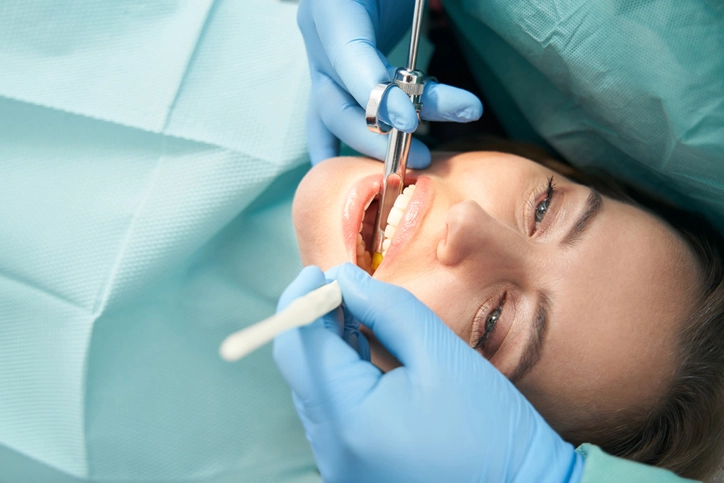Turn to your Rock Hill dentists for urgent dental care.
Dental Emergencies Don't Wait, Neither Do We!

When a dental emergency arises, it can be hard to know what to do. Dental emergencies don’t have to be stressful with River District Smiles Dentistry. We offer a wide array of services and can help you with any dental issue no matter how big or small.
At River District Smiles Dentistry, we go above and beyond to give our patients the urgent dental care they deserve in cases of emergencies and accidents. Our caring experts are proud to offer the latest dental technology, treatments, and materials in a comforting environment. If you or your child experience a dental emergency, visit or call us right away. Our emergency dentist in Rock Hill, SC is trained in emergency dentistry and can help you with anything from routine cleaning to extractions for maximum oral health.
Why would I need an Emergency Dentist?
A dental emergency, injury, or accident can occur at any time, and often when you least expect them.
Here are common emergencies that we treat at our Rock Hill dentist office:
- Chipped tooth
- Cracked tooth
- Broken tooth
- Tooth pain
- Knocked-out (avulsed) or loosened (extruded) teeth
- A cracked or broken denture
- An issue with a dental implant
- Cuts on the lips, gums, tongue, or cheeks
- Severe or throbbing toothache
- Swelling and pain in the face or jaw (due to infection)
- Missing, broken, or loose fillings
- Missing, broken, or loose crowns and bridges


What to expect from your Emergecy Dental Appointment with River District Smiles Dentistry?
At River District Dental, our emergency dentists believe that our patients deserve high-quality care in a comfortable environment. However, this is not without a cost. We are continually trying to find ways to keep our patient costs low while maintaining the quality of care that they deserve.
Your well-being is one of our top priorities–we understand that oftentimes, speed is what you’re after. That’s why our doctors will work on your case as soon as we can while ensuring quality results that you’ll love.
Same Day Appointment
Our practice is happy to take your appointment over the phone or schedule you for your next one. Get in touch with our office and we’ll set up a time that works for you.
Emergency Evaluation
Our highly experienced dentist will perform an emergency exam, which may or may not involve digital x-rays to assess the source, location, and severity of your symptoms.
Review and Analyze Findings
After your exam, the dentist will break down the findings with you. They’ll recommend a treatment plan that includes both dental care and non-dental therapy. Our doctors are highly trained and can help with your emergency care needs. We offer affordable services and get you back on the road to living a normal life in no time!
Treatment
We recommend a variety of treatments for your emergency, and we will ask a few questions about your dental history before offering treatment. Our most common treatments include dental crowns and fillings, tooth extractions, root canal therapy, or another option if necessary.



